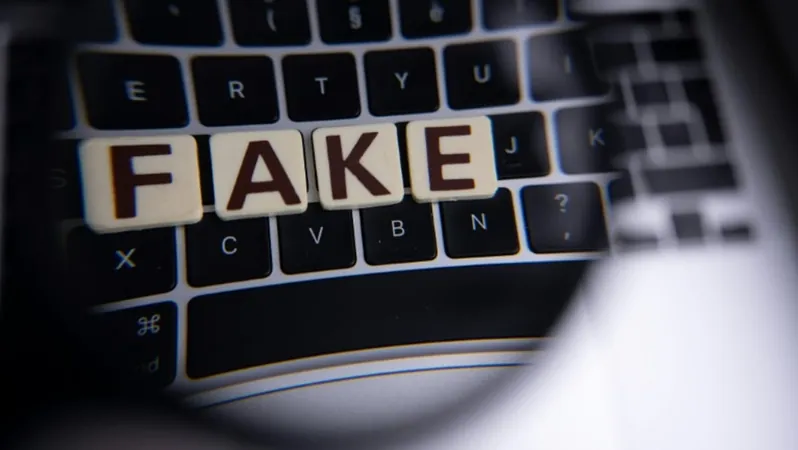
80% of Singapore’s Youth Demand Media Literacy Classes: Are Schools Ready?
2024-10-01
SINGAPORE: A recent survey conducted by Milieu Insight has revealed a startling insight—nearly 80% of students in Singapore under 18 years old are clamoring for media literacy classes to be incorporated into their school curriculum. This overwhelming demand highlights a growing awareness of the challenges posed by misinformation in our digital age.
While students universally recognize the importance of media literacy, opinions are mixed regarding the efficacy of current educational initiatives. Experts stress the necessity of tailoring media literacy programs to engage the younger audience effectively.
Combating the Fake News Epidemic
To tackle the rising tide of fake news, schools and NGOs have embraced interactive methods such as gamification to make learning more relatable. TOUCH Cyber Wellness, a notable non-profit, utilizes online games to foster engagement. Through these games, students use their personal devices to navigate through scenarios designed to educate them on the warning signs of scams and misleading information.
Shem Yao, the manager of Digital Wellness at TOUCH, elaborates on this approach: “Students are challenged to solve puzzles that help them detect incongruities in messages or emails that could indicate a scam. This hands-on experience is pivotal in honing their critical thinking skills.”
Experts believe that alongside education, instilling strong values regarding responsible sharing is critical. Professor Edson C Tandoc Jr. from Nanyang Technological University emphasizes, “While sharing humorous content online might seem harmless, it often compromises the integrity of information. Educating children about the tangible repercussions of spreading unchecked information will make them more discerning consumers of media.”
The Role of Social Media in Fake News
The survey indicates that over 60% of youth have encountered fake news, predominantly through social media platforms such as Instagram and TikTok. Astonishingly, nearly half of the respondents reported spending between three to four hours daily on these platforms. Professor Tandoc endorsed these findings, stating, “The more time spent on social media correlates with an increased likelihood of believing in falsehoods presented to them.”
The pressing concern arises: how do we cultivate a mindset of discernment among children in this digital era? Experts assert that parents play a pivotal role in guiding their children through the complexities of social media use.
Navigating the Deepfake Challenge
The emergence of AI-generated deepfakes adds another layer of complexity to the challenge of media literacy. Yao warns, “Children could be susceptible to scams where someone uses deepfake technology to impersonate family members. It is crucial to equip parents with strategies, such as establishing family passwords, to verify identities in these situations.
Recognizing these challenges, Singapore's Ministry of Education has integrated media literacy into the Character and Citizenship Education (CCE) program. Schools typically conduct CCE lessons for two hours each week, focusing on evaluating the credibility of information sources and understanding the repercussions of false information.
As the digital landscape continues to evolve, the quest for effective media literacy education has never been more critical. Will schools rise to the challenge to equip future generations with the skills they need to navigate the murky waters of online information? The time to act is now!


 Brasil (PT)
Brasil (PT)
 Canada (EN)
Canada (EN)
 Chile (ES)
Chile (ES)
 España (ES)
España (ES)
 France (FR)
France (FR)
 Hong Kong (EN)
Hong Kong (EN)
 Italia (IT)
Italia (IT)
 日本 (JA)
日本 (JA)
 Magyarország (HU)
Magyarország (HU)
 Norge (NO)
Norge (NO)
 Polska (PL)
Polska (PL)
 Schweiz (DE)
Schweiz (DE)
 Singapore (EN)
Singapore (EN)
 Sverige (SV)
Sverige (SV)
 Suomi (FI)
Suomi (FI)
 Türkiye (TR)
Türkiye (TR)